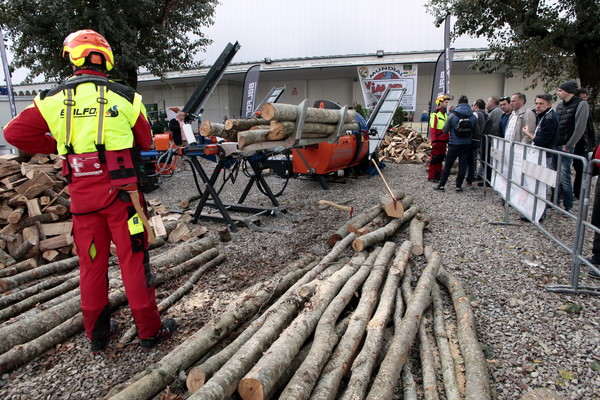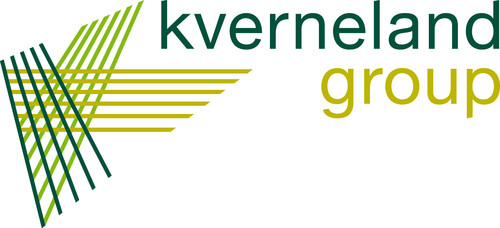
EIMA ENERGY, planned initiatives
Focusing in particular on agricultural and forestry biomass - which is a very important resource that can meet a significant part of Italy's energy needs, if properly used - the exhibition offers a complete overview of both the bioenergy chain and the wider sphere of the circular bioeconomy. The topics covered will range from the most efficient systems for handling and exploiting biogenic resources to the description of energy conversion technologies and information on public policies in the sector and incentive systems. For this and more, EIMA Energy is the operational tool for all those who, on a public and private level, focus on the correct use of local renewable resources. As well as animating a vast area dedicated to dynamic tests of modern operating machines - described by researchers from CNR IBE - the following workshops will be held in the Green Room of Hall 33, aimed at disseminating development and innovation experiences gained in the sphere of European and national projects.
Wednesday 20 October
The ENAGRI Project, bioenergy and sustainable mechanisation
(15.00 - 16.00)
The ENAGRI Project, implemented with the contribution of the Ministry of Agriculture, Food and Forestry, aims to promote the development of renewable energy sources in the agroforestry sector. The workshop aims to disseminate the multimedia course, produced with the collaboration of ITABIA and CNR IBE, entitled "Machinery and equipment used for the production of biomass for energy purposes". The aim of both initiatives is to provide information about good practices aimed at maximising the sustainability of biomass supply chains for energy use. To this end, the most suitable systems for recovering and processing woody biomass of agro-forestry origin are described in relation to the territorial contexts and the specific end uses of the biofuels obtained. Given the topics covered, a synergy has been established with the H2020 BRANCHES project in which ITABIA and CNR IBE are participating for Italy.
Thursday 21 October
The COBRAF project, hemp harvesting and primary processing systems (10.00 - 13.00)
COBRAF (Coprodotti da BioRAFfinerie – Coproducts from Biorefineries) is a project financed by the measure 16.2 PSR Toscana 2014-2020 for the development of agro-industrial supply chains from four oil crops: Hemp, Camelina, Safflower and Flax.
In this context, a new plant for the production of quality fibre is being built in Tuscany and several projects on industrial hemp are underway in other Italian regions.
Federcanapa, in collaboration with the Operating Group of the COBRAF project, presents an overview of the current solutions for the joint harvesting of hemp stems and tops and for the subsequent stages of scutching and maceration of the fibre.
The COBRAF project, opportunities for the development of biorefineries in Italy
(15.00 - 17.30)
The COBRAF Project Working Group presents an overview of the main techniques used today for the extraction of oils, fats and other active ingredients from plants.
The respective costs and benefits for farms and users.
The system envisages the use of various parts of the biomass and production residues for the development of innovative and more sustainable bioproducts for various industry sectors: food, cosmetics, pharmaceuticals, construction, wood, automotive, etc.
In this context, field machinery and oil extraction technologies play a central role.
Friday 22 October
Agricultural mechanisation and ecological transition
(11.00 - 12.00)
The fight against the greenhouse effect and global warming is played out on many fronts. Agricultural mechanisation, in its most recent technological innovations, can make a hugely important contribution. With this in mind, drastic action must be taken on the obsolescence of machinery through effective policies to scrap the old and encourage the use of more efficient, safer and less polluting technologies. ENEA, together with ITABIA and FederUnacoma, is collecting all the data relating to the national state of the art in order to provide useful tools for political decision-makers to effectively guide the modernisation process of mechanisation envisaged by the NRRP.
The BRANCHES Project: agro-forestry biomass as a green resource to revitalise the rural world
(15.00 - 16.30)
The BRANCHES project - Boosting RurAl Bioeconomy Networks following multi-actor approACHES - is an initiative funded by the European Commission under the Coordination and Support Actions (CSA) of the Horizon 2020 Programme. In this three-year project (2021-2023) 12 partners from 5 European countries - Finland, Germany, Italy, Poland and Spain - are collaborating. The context is very broad, embracing the many themes of the green economy, from the management of rural areas to the biobased industry including bioenergy. In this perspective, BRANCHES - through the promotion of new technologies - aims at increasing the sustainability of the supply chains built around biomass, making forest and agricultural sites more efficient for the collection, transport, conditioning and storage of this precious resource. Each partner country will have to create a National Thematic Network (NTN) involving as many potentially interested parties as possible, such as companies, research bodies, trade associations and public administrations. This workshop will be the first opportunity for the Italian NTN to meet and share - with a "bottom up" approach - the path to be undertaken in the three-year project period.
Saturday 23 October
Capraia Smart Island, a laboratory of circular bio-economy
(10.00 - 11.00)
A workshop dedicated to the Capraia Smart Island initiative, a wide-ranging circular economy project that FederUnacoma has been sponsoring from the outset. The idea was born from the enthusiasm of Sofia Mannelli - citizen of Capraia and president of the Green Chemistry Association Bionet - and took off with the help of an important board of scientific partners: the Institute of Atmospheric Pollution of the National Research Council (CNR-IIA), the Kyoto Club and ITABIA Italian Biomass Association. Working on small islands makes it possible to test models of sustainability where the clear geographical and social separation makes these territorial settings similar to veritable open-air laboratories. For the NRRP, the smaller islands represent a "driver for ecological transition" with the protection and enhancement of natural beauty, the use of renewable energy sources, the management of water resources, and an increasing development of extreme agriculture that requires special mechanical means. Capraia has a long tradition of agriculture that must be protected, and in the historic terraces, young farmers are relaunching organic horticulture, beekeeping, livestock breeding and wine and oil production.








